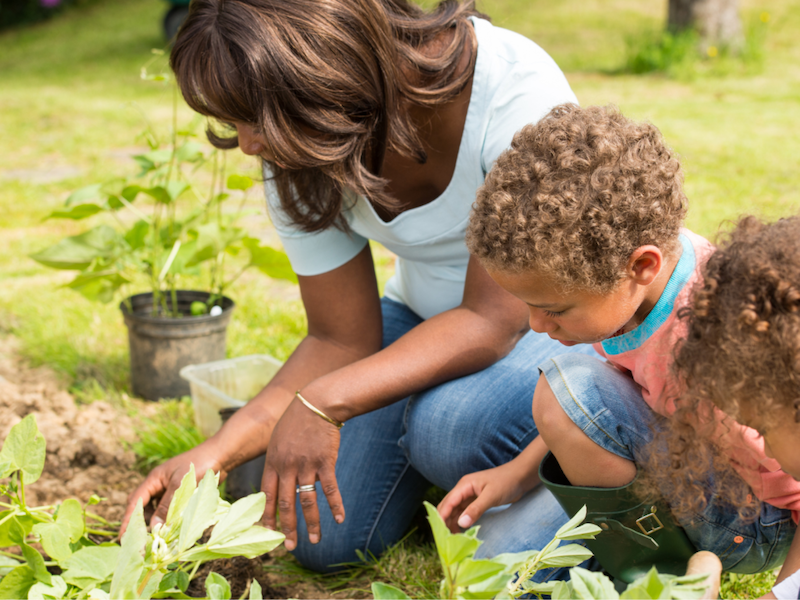As the summer holidays stretch ahead, many parents find themselves anticipating the challenge of keeping their children entertained and engaged for several weeks.
However, according to Maria Montessori’s Institute‘s Head of Training, Louise Livingston, parents can do more than just “survive” the summer holidays. By incorporating elements of the Montessori approach they can encourage children’s creativity and independence and make lasting memories.

Preparing Yourself and Your Home
Parents can create a routine that balances structured activities and free time, and can arrange toys and resources to support independent play and learning. A routine creates a predictable environment for children at a time when their usual schedules may not be in place. By organising board games, art materials or other resources so they are easily accessible to the children we give them the opportunity to select activities and occupy themselves. Food and tableware can also be stored in a way that children become responsible for serving their own snacks and drinks. Involving children in organising the home can also foster a sense of ownership and responsibility for keeping things in good order.
Exploring Nature
Whether you are visiting a local park, exploring a nature reserve or spending time in the garden, you can open your children to the wonders of nature by pausing to listen to the rustle in the trees from a breeze or to watch a scurrying ant. Slowing your steps and walking, listening and watching at your child’s pace, reveals the wonders of nature through the fresh eyes of your child. As parents if we see the magic in our world, then our child will too.
Involving Children in Household Tasks
One key aspect of the Montessori approach is nurturing independence by involving children in age-appropriate household tasks. From simple chores like watering plants or setting the table, to more complex activities like food preparation, washing the car, writing shopping lists or helping with the laundry, children can develop practical skills, a sense of responsibility and confidence in their abilities – all while helping to share the household workload!
Embracing Boredom
When children have unstructured time, they are more likely to explore their own interests, engage in creative play, and develop problem-solving skills. By resisting the temptation to fill every moment with planned activities and instead providing an environment that encourages self-directed play, parents can help their children tap into their innate creativity, be more self-sufficient and discover things they enjoy. If children are enjoying a particular activity, you can look at ways to extend it to offer a greater challenge and build on their enjoyment.
Encouraging Independence
The holidays are a good opportunity to support children to become more independent in daily activities such as dressing, eating and sleeping, as well as playing and entertaining themselves. To look after their own needs gives so much more to a child than the necessary physical skill and encourages the all-round development. When children are undertaking any tasks or playing, parents should be mindful about first standing back to observe before diving in to offer help. There will be times when help is needed, but there will also be situations when given a little more time or a nudge in the right direction, a child is able to overcome the challenge by themselves. What this fraction of space may give them, is a feeling of self-belief: “I can do this by myself!”
Letting the Children Take Charge
Whether you’re planning a play-date or a special outing, you can share the work of deciding what to do and getting organised for the activity with your child. You could also talk with your children about where they would like to go for an outing during the summer holidays. In the Montessori approach children are given choices from an early age which helps to nurture a decision-making mind-set which can help when faced by dilemmas later in life. For younger children we can offer a choice from two options at first and over time expand the choices offered so they are able to build their capacity to make decisions.
Discover the London Montessori school for children from 2-12 years, and Maria Montessori’s Institute’s courses: Online courses or Teacher Training.



